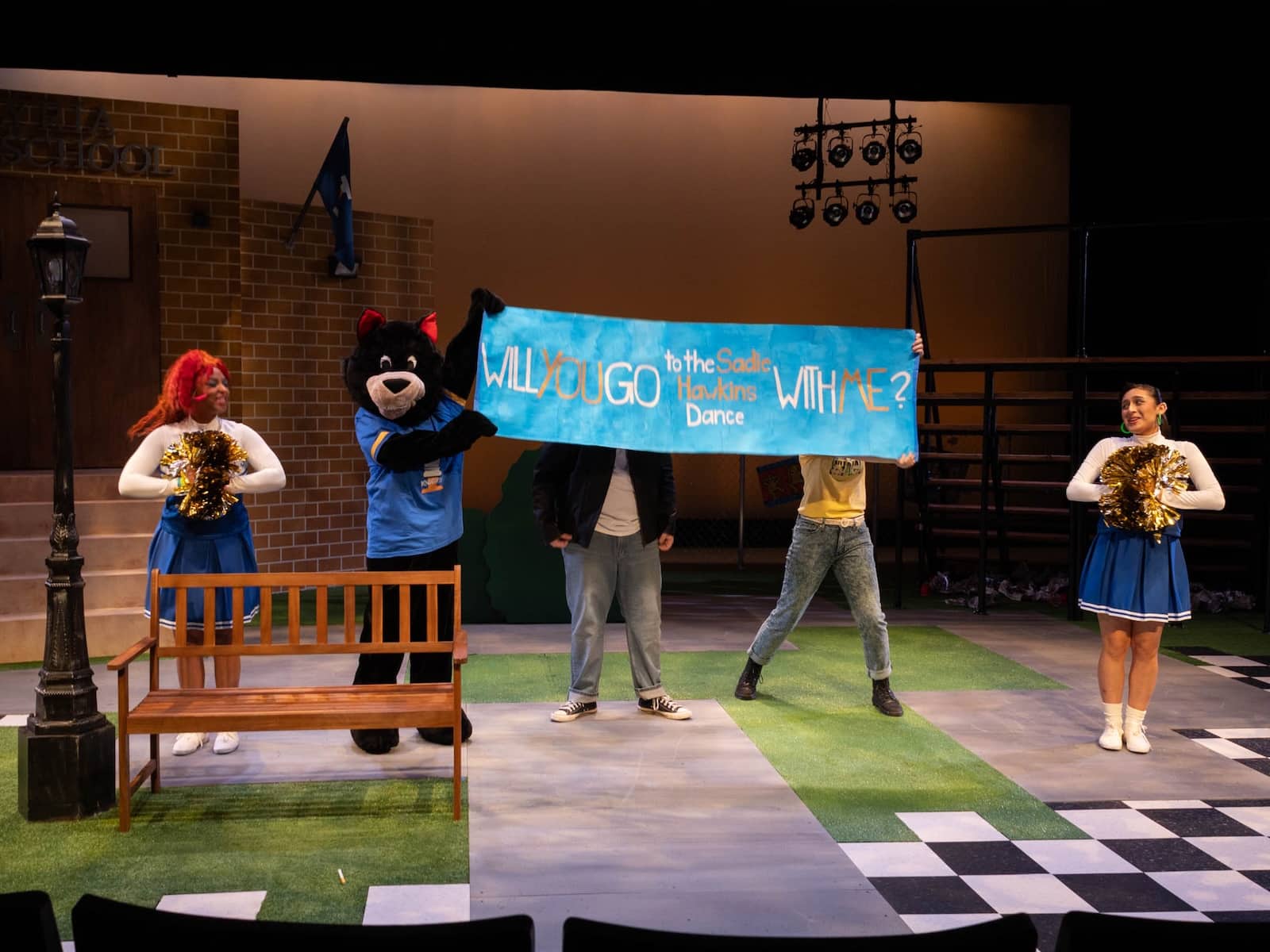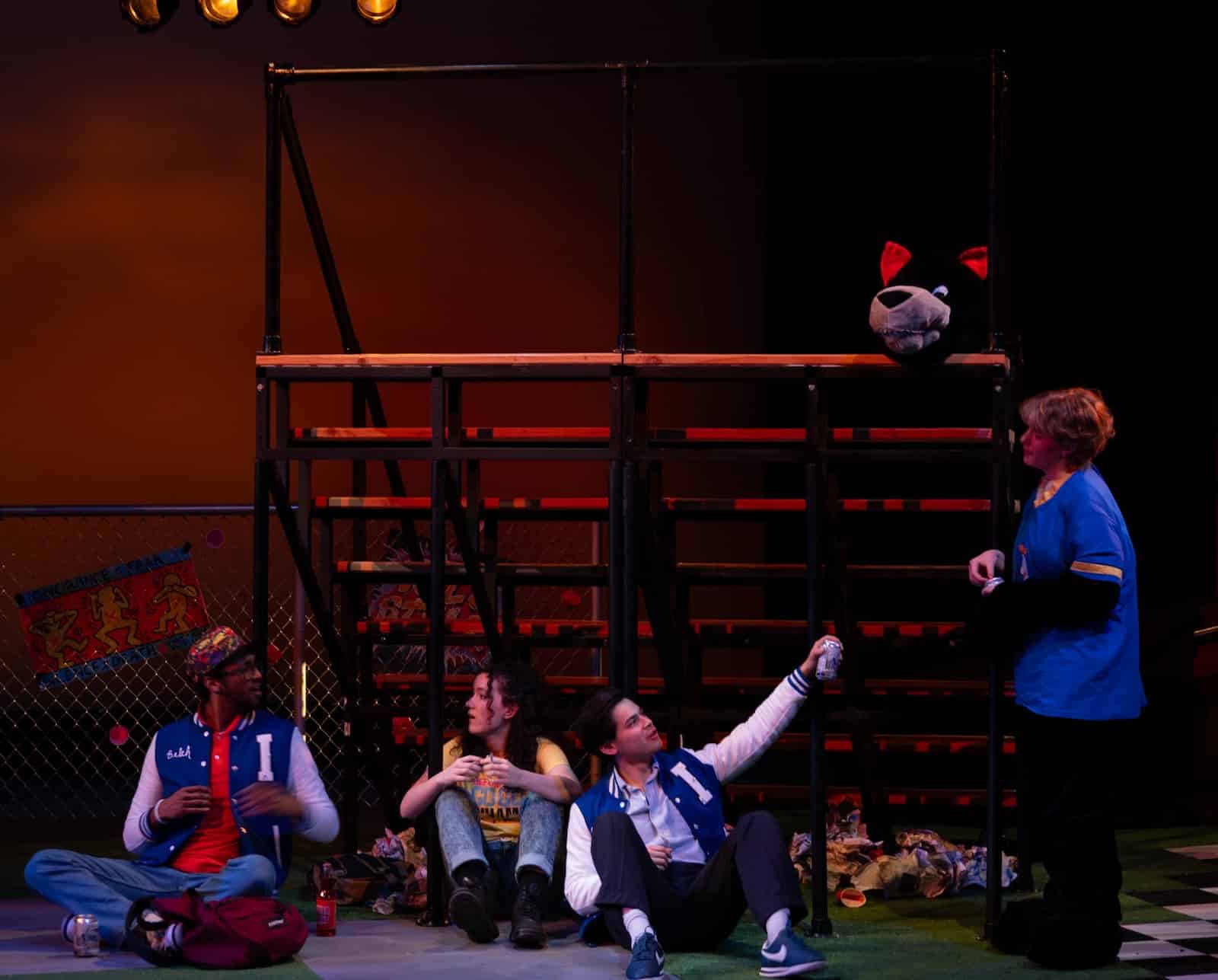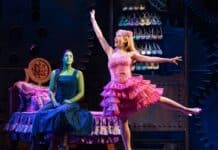The trials and tribulations of love are a universal truth — almost everyone has a story to tell of love gone awry or a messy first date. These universal truths are what William Shakespeare takes to new heights in this romantic comedy, and with an updated setting of a 1980s high school courtesy of director Travis Xavier, Twelfth Night is a hilarious and heartwarming tale of love, mistaken identity, and what it takes to be true to yourself.
Often regarded as one of Shakespeare’s greatest comedies, Twelfth Night follows twin brother and sister Sebastian and Viola; in this interpretation, they end up in Illyria High School, where Viola must disguise herself as a mime to fit in without being noticed while Sebastian looks for help with their broken motorcycle. What follows is hilarious hijinks of mistaken identity, chaotic love triangles, practical jokes that may go a bit too far, and much more lovestruck teenage chaos.

A common concern of modern audiences with Shakespeare is the language, but this production delivered dialogue at an upbeat pace that matched the high energy of the cast and of the story. Lines were punchy, and delivery was crisp, adding to the production’s modern feel. The cast proved with hilarity and spunk that they understood the text as they worked to convey it in the modern setting. Highlights from the cast include Ally Fenton, who showed great range and emotion as Viola/Cesario; Alec Schneller, who committed fully to his role as the hilarious and gullible Malvolio; Natalia Fernandez-Davila as Olivia, whose tenacity and determination dominated scenes; and Addie Witmer as Feste, whose commentary and singing shed light on the true themes of this show — all while in a high school mascot costume! Overall, the cast dynamics were fun, funny, upbeat, and dramatic, much like any high school.
A significant change from the original Shakespeare text to this adaptation is the more modern setting. The shift to a 1980s high school is immediately recognizable in the set, done by scenic designer Olivia Goncalves, which features trash-filled bleacher seats, a staple of many high schools. The costumes designed by Emily Vallozzi continue this modern theming with bright colors and abrasive patterns, as well as cheerleading outfits and varsity jackets that tie into the theme of power dynamics. All the design elements worked together to transport the audience to the 1980s.
This play’s themes center around love, gender, and belonging, and as is noted by dramaturg Gale Linderman, “gender and sexuality are extremely fluid in ‘Twelfth Night.’” Since queer depictions are not often written into classical theatre, “the queer community instead finds representation themselves” in characters that can be viewed through a queer lens, Linderman writes. The LGBTQ+ community faced many challenges in the ’80s as well, most notably the AIDS epidemic and the increased homophobia that came with it. The undercurrents of gender ambiguity and homosexuality featured in this play, mixed with this setting, create a compelling perspective for viewing the play with queerness in mind, and this cast and production team did an excellent job honoring the queer community through classical theater.

Twelfth Night is a spunky, modern, and funny adaptation of one of Shakespeare’s most celebrated comedies that stays true to the core of the original while leaving room for modernity and new, challenging questions and themes to be explored.
Running Time: 90 minutes, no intermission.
Shakespeare’s Twelfth Night plays through November 2, 2025, presented by the Corcoran School of the Arts & Design at George Washington University performing in the Dorothy Betts Marvin Theatre, University Student Center – 800 21st Street NW, Washington, DC. For tickets ($20 adult, $10 seniors/students, plus fee), purchase them at the door or online.
The program is online here.
Shakespeare’s Twelfth Night
Adapted and directed by Travis Xavier



